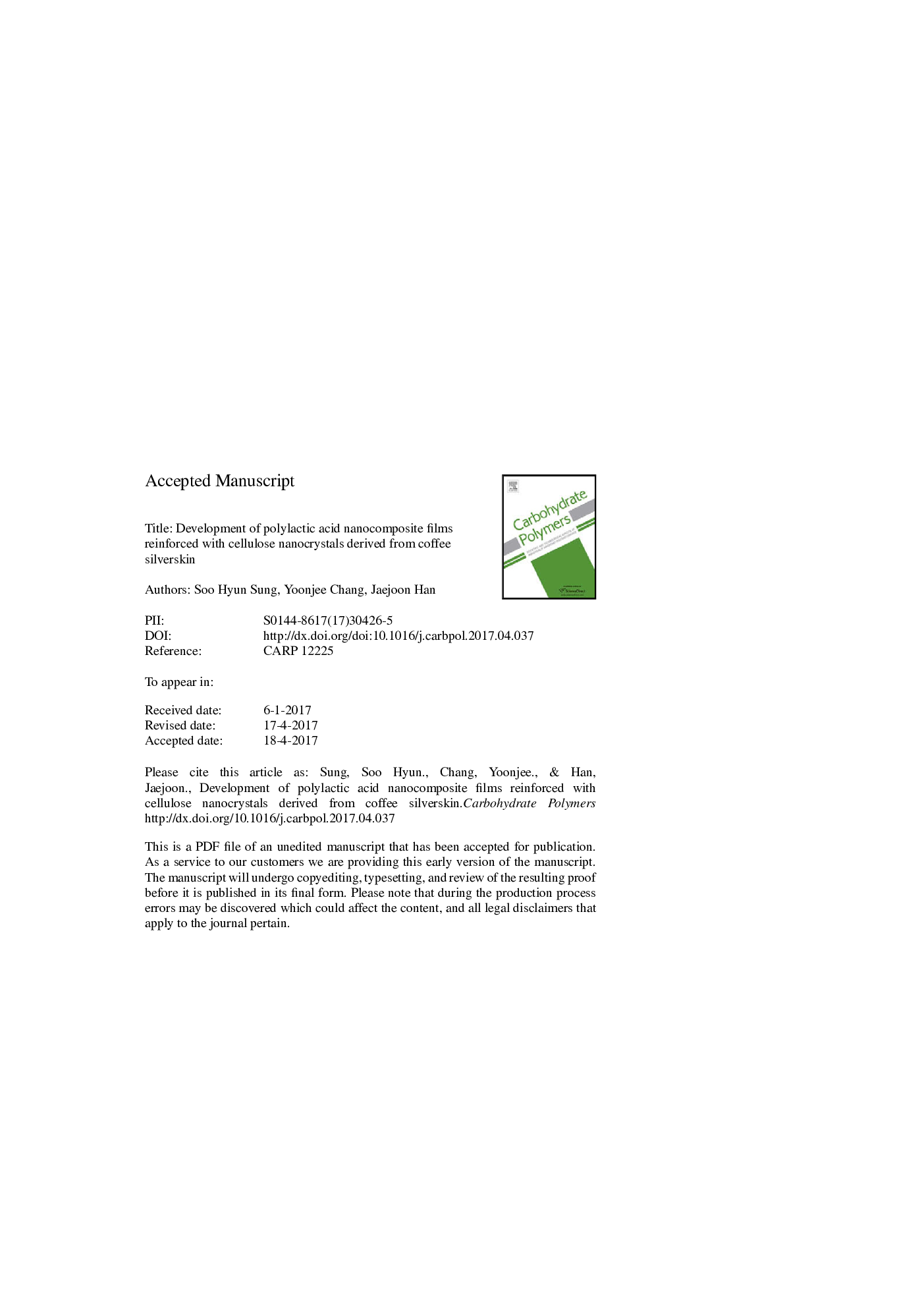| Article ID | Journal | Published Year | Pages | File Type |
|---|---|---|---|---|
| 5157223 | Carbohydrate Polymers | 2017 | 33 Pages |
Abstract
Bio-nanocomposite films based on polylactic acid (PLA) matrix reinforced with cellulose nanocrystals (CNCs) were developed using a twin-screw extruder. The CNCs were extracted from coffee silverskin (CS), which is a by-product of the coffee roasting process. They were extracted by alkali treatment followed by sulfuric acid hydrolysis. They were used as reinforcing agents to obtain PLA/CNC nanocomposites by addition at different concentrations (1%, 3%, and 5% CNCs). Morphological, tensile, and barrier properties of the bio-nanocomposites were analyzed. The tensile strength and Young's modulus increased with both 1% and 3% CNCs. The water vapor permeability decreased gradually with increasing addition of CNCs up to 3% and good oxygen barrier properties were found for all nanocomposites. These results suggest that CNCs from CS can improve the physical properties of PLA-based biopolymer film. The developed PLA/CNC bio-nanocomposite films can potentially be used for biopolymer materials with enhanced barrier and mechanical properties.
Related Topics
Physical Sciences and Engineering
Chemistry
Organic Chemistry
Authors
Soo Hyun Sung, Yoonjee Chang, Jaejoon Han,
